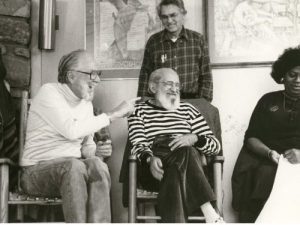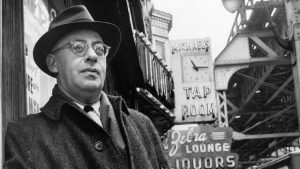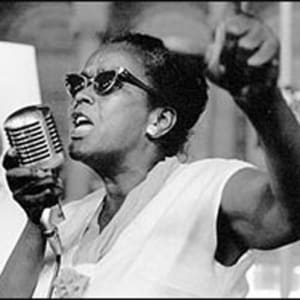The ability to organize as a community and establish strategies to fight for the implementation of these courses is vital to the movements’ progression. Thankfully, communities can and should turn to philosophers/organizers for guidance and to inform themselves about the basics of community organizing. From this course, I have broken down the principals of organizing into three main points.

Paulo Freire Freedom School
The first point is that organizers should serve as facilitators to unlock a community’s collective knowledge. Educators and organizers Myles Horton and Paulo Freire established the Highlander Institute, a learning institute in which individuals learned about the basics of organizing through community–led discussion and debate. These future organizers were taught that individuals hold a substantial amount of knowledge about the issues they face and that they should be helped to unlock it by creating spaces where they can share their experiences and connect with others (Horton and Freire, 2014, p.146). Realizing others in the community have similar experiences, it will form a bond that validates the individual’s experiences and create an empowering sense of unity. This sense of power is necessary to push the community to take the risks of the incentives that will help them make progress on the issues their community faces.

AP Images
Secondly, organizers must help communities identify and establish strategies to mobilize for the causes they care about. American activist Saul D. Alinsky argues that the unlocking of collective knowledge is useless if communities have no way of doing anything about this knowledge and to improve the situations they find themselves in. They will have “no course of action except to blow their tops” (Alinsky, 1971, p. 118). Understandably, this would be unproductive for the community. If there is to be social change, there must be ways to get there and productive expression of passion. Otherwise, the community will become disillusioned due to lack of progress and there will be no more mobilizing.

Biography.com
Most importantly, organizers must prepare communities to organize themselves. Organizer Ella Baker strongly believed in aiding communities in becoming aware of their power through the idea of participatory democracy so that they will eventually be independent. Participatory democracy establishes that communities should be politically active as they have the power to make change. (Mueller, 2004, pp. 82-83). Organizers can help communities organize into action through the creation of ongoing groups to solve local issues and aiding individuals in becoming more active within organizations who were fighting for the same goals. Through this process, the community recognizes the power they have on their own and their ability to continue the work themselves, allowing the organizer to step down without ending the political engagement and progression of that community.
Together, these strategies can prepare communities to fight for ethnic studies courses and continue to push for their success after they are established.
